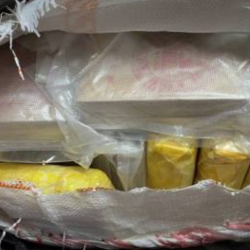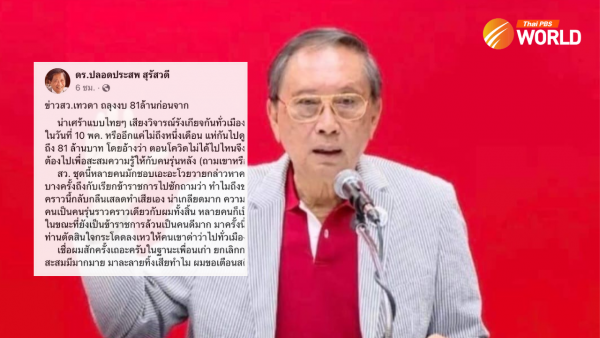EC announces dos and don’ts for parties, candidates and ministers in next 180 days

Thailand’s Election Commission announced a set of strict rules today (Tuesday) defining what political parties, potential election candidates and holders of political offices can and cannot do during the 180-days between now and March 23rd, 2023, when the 4-year term of the House of Representatives is due to expire.
The announcement, by EC Secretary-General Sawaeng Boonmee, was broadcast live via Zoom to all provincial election officials, so they will be able to advise potential election candidates and party officials of what activities they can do or should avoid, so they are not seen to be breaking the election law.
The rules apply to potential election candidates, political parties and political office holders, such as ministers and political officials, and state agencies.
Sawaeng said that representatives of political parties and their potential candidates can attend ceremonies, like weddings, funerals and ordinations, and can present wreaths or flowers to the hosts, but no cash or other valuables. They can, however, offer a financial contribution towards materials arranged by the hosts, such as Pangsukula cloth used in Buddhist funeral rites, but not on behalf of a political party or candidate.
The name of a political party or a candidate can be referred to as Chair of a Kathin ceremony, but no cash donations can be made to the ceremony and the host of the ceremony cannot refer to such names in a way which could be considered to be election campaigning.
A potential candidate can host a funeral, an ordination or a wedding, but the ceremony must not be too grand with many guests being invited, which could be interpreted as holding a banquet or suchlike, which is a violation of the election law.
A political party leader or an executive committee member can help campaign for their potential candidates in their constituencies, but cannot hire other people to help in the campaigning or to participate in campaign rallies.
Potential candidates and parties can campaign in schools, but only with the permission of their management. They are not, however, permitted to provide aid or materials to people struggling with flooding or other public disasters.
Campaign posters can only be displayed at locations specified by law and the sizes of the posters must be in line with the election rules.
For political office holders, such as ministers, Sawaeng said they can perform their duties as normal, can preside over official functions, can appear on television and can conduct inspection trips to see the people as normal, but cannot do anything which may be deemed to be campaigning for themselves or others.
As for state agencies, they can also perform their duties as normal, such as holding seminars, competitions or festivals, in accordance with the guidelines set by the cabinet on February 1st, 2019.






